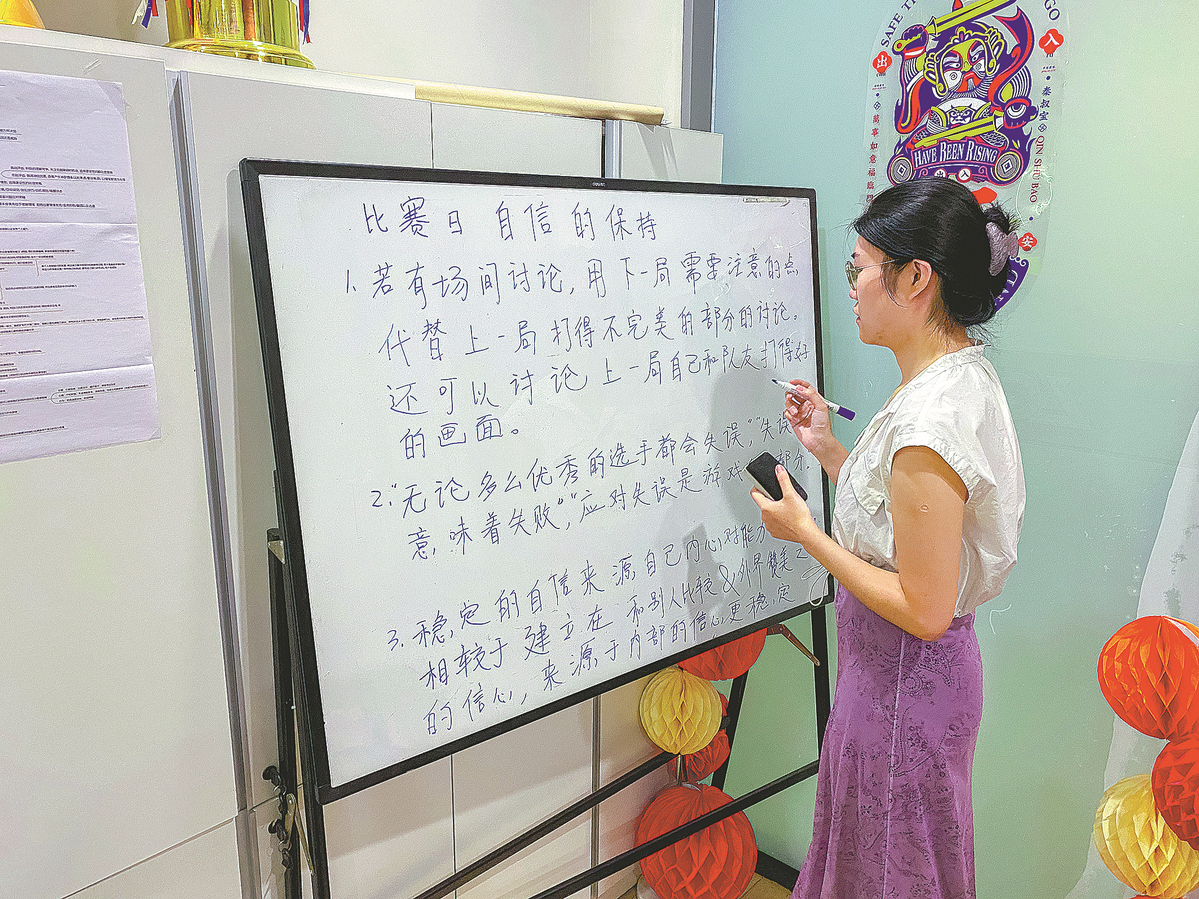

To integrate into this group, Liu put in a lot of effort, such as participating in the daily training and game review of team members six days a week and communicating with each team member for 30 minutes every week to dispel their rejection of psychological counseling.
In addition, unlike a temporary psychological counselor, Liu also helped team members to solve issues in romantic and interpersonal relationships, which soon earned her the trust of her teammates.
Liu explained that esports players would face different psychological problems at different stages. For example, abnormal performance during the game was a very common issue among the young or inexperienced players.
"Some players will set high expectations or goals before a game, so when the game does not go in their expected direction it will easily lead them to pay excessive attention to mistakes and self-criticism, resulting in an even worse performance," Liu said.
Therefore, she will guide the players to set more flexible standards, including redefining success in the game, developing a more flexible mindset, and practicing breathing and attention training, which can help them focus more quickly on the game and perform better.
Meanwhile, some players over the age of 25 are prone to developing a psychological state of self-doubt, as many people believe that the golden age for esports players is around 20 years old. In this case, Liu will make cognitive adjustments for them, telling them about the impact of individual differences on competitive competition, and using science and theory to let them know that they can reach their peak at the age of 25 or above.
In addition to communicating and adjusting their psychological state, Liu always plays games with the team, such as "blind" walking to increase trust and cooperation among team members. She will also raise everyone's hormones and heart rate to an excited state before the competition, which will all affect the results of esports competitions.